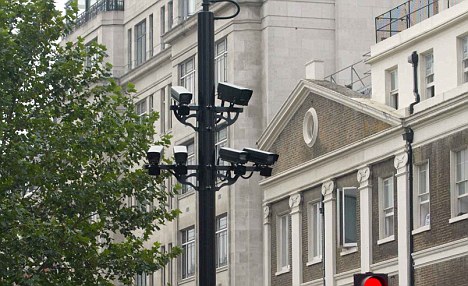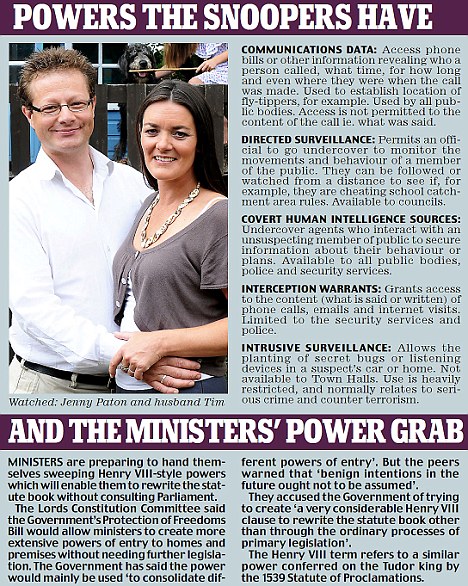Suck-O Time
| Big Brother's THREE MILLION targets: Massive surge in intrusive surveillance by state snoopers Read |
 |
 |
 |
| Written by computathug |
| Friday, 04 November 2011 05:56 |
|
The astonishing extent of Britain’s surveillance society was revealed for the first time yesterday. Three million snooping operations have been carried out over the past decade under controversial anti-terror laws. They include tens of thousands of undercover missions by councils and other state bodies which are not responsible for law enforcement. Cases include a family who were spied on to check they were not cheating on school catchment area rules and so-called ‘bin criminals’. The campaign group Justice is demanding the hugely controversial Regulation of Investigatory Powers Act – under which all the operations were authorised – be scrapped altogether. The group’s report, titled Freedom from Suspicion, says: ‘The UK has, in the space of 40 years, gone from a society in which mass surveillance was largely a theoretical possibility to one in which it has become not only ubiquitous but routine.’
RIPA, billed as ‘anti-terror legislation’, was passed by Labour in 2000 supposedly to regulate snooping by public bodies. But Justice, which has campaigned on privacy matters for decades, says the result has been a huge increase in intrusive surveillance. Since the Act was passed, there have been:
In total, the report says there have been around three million decisions taken by state bodies under RIPA, not including authorisations given to the security and intelligence services. Yet fewer than 5,000 of these – just 0.16 per cent – were approved by judges. In the remaining cases, they required only the approval of a bureaucrat or, in a small number of cases involving large scale intrusion, a Secretary of State. The report says: ‘RIPA has not only failed to check a great deal of plainly excessive surveillance by public bodies over the last decade but, in many cases, inadvertently encouraged it. ‘Its poor drafting has allowed councils to snoop, phone hacking to flourish, privileged conversations to be illegally recorded and CCTV to spread. It is also badly out of date’. The report follows a string of revelations by the Mail about over-zealous officials training hidden cameras and even undercover agents on the law-abiding public. These include spying on those suspected of dropping litter and attempting to cheat school catchment area rules. Council staff – who have been accused of having James Bond delusions – have been secretly taking photographs and video of the public. In some cases, cameras have been hidden in tin cans, or inside the homes of the neighbours of their ‘target’. 
Poole Council admitted spying on a family to find out if they were really living in a school catchment area Most notoriously, Poole Council admitted spying on a family to find out if they were really living in a school catchment area. Jenny Paton and her family were put under surveillance without their knowledge for more than two weeks. The council admitted using RIPA powers on six occasions in total. Three of those were for suspected fraudulent school place applications. The Coalition’s Protection of Freedoms Bill will reform RIPA – forcing councils to get authorisation from a magistrate before they can go on spying missions. But Justice says the new safeguards are insufficient and RIPA should be scrapped. It calls for an entirely new regime to be put in place. Justice’s Angela Patrick said: ‘The time has come for Parliament to undertake root-and-branch reform of Britain’s surveillance powers and provide genuinely effective safeguards against abuse.’ The report also warns that Britain has the largest DNA database in the world and the largest number of CCTV cameras. It highlights how the public readily hands over information, via supermarket loyalty cards and Oyster London Underground travel passes, which can be used to track a person’s movements. A Home Office spokesman said: ‘The first duty of the state is the protection of its citizens, but this should never be an excuse for the government to intrude into people’s private lives. This is why we are changing the law to restore common sense and prevent local authorities using surveillance for trivial offences.’ |
| Last Updated on Friday, 04 November 2011 19:33 |
Polls
Download stats
| Our archive contains:
570 files 75 categories To date, these have been downloaded 866829 times. |
Link to us
![]()
